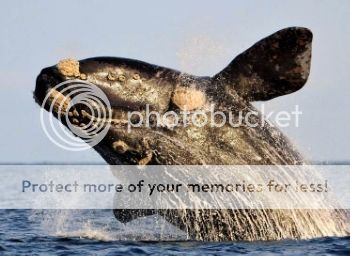Ship Strike Rule Could Save Lives

Whales are at the top of the aquatic food chain. Therefore, their rapidly depleting numbers fall to the irresponsible actions of humans. While there is ongoing global movement to encourage the cessation of whaling practices, and greater awareness about the longstanding negative impacts of toxic dumping in oceans, the complications from the existence of man-made aquatic vessels in their habitat is more downplayed.
Data suggests that water vessel collisions with marine life remains one of the most frequent contributors to the premature deaths of critically endangered animals, like the right whale, the blue whale, and manatees. This data comes, in large part, from the National Oceanic and Atmospheric Administration's (NOAA) Ship Strike Reduction Strategy, which tallies private, commercial, and military ship reports, stranded or beached marine animal sightings, and routine updates from NOAA's Office of Law Enforcement. Part of the reduction strategy includes a Ship Strike Rule, which mandates the reduction of speed to 10 knots (12mph or 18kph) for ships at least 65 feet (19.8m) long, along the United States Atlantic seaboard. This initiative is there to protect the general marine life population. However, there is a particular concern over the continued existence of the North Atlantic right whale, whose population growth has remained at zero since 1988.
Once plentiful, the right whale experienced rapid depletion during the early 1900s from unrestrained whaling practices. In 1935 protective measures where initiated to stop the exploitation. However, the population has not yet successfully recovered. Each year, the population tally consistently remains at a sobering 444 members. This number concerns marine life conservationists, as right whale females only give birth roughly once every five years, and the calf gestation period exceeds 12 months. A zero population growth indicates the presence of several factors.
The National Marine Fisheries Service (NMSF) research indicates that a consistently slower speed reduces marine life injury and death, better preserving endangered species. The findings were significant enough to suggest making the Ship Strike Rule a permanent condition, rather than one subject to expiration every four years. The permanence of this action would allow critically endangered marine mammals the opportunity to traverse impending extinction and put them back on the path towards sustainable growth, while making slower speeds the standard, rather than the exception, on the waterways.
For those interested, sign the Help Save Endangered Marine Life petition.
This is Deb Duxbury, for Animal Life, reminding you to please spay or neuter your pet.
Data suggests that water vessel collisions with marine life remains one of the most frequent contributors to the premature deaths of critically endangered animals, like the right whale, the blue whale, and manatees. This data comes, in large part, from the National Oceanic and Atmospheric Administration's (NOAA) Ship Strike Reduction Strategy, which tallies private, commercial, and military ship reports, stranded or beached marine animal sightings, and routine updates from NOAA's Office of Law Enforcement. Part of the reduction strategy includes a Ship Strike Rule, which mandates the reduction of speed to 10 knots (12mph or 18kph) for ships at least 65 feet (19.8m) long, along the United States Atlantic seaboard. This initiative is there to protect the general marine life population. However, there is a particular concern over the continued existence of the North Atlantic right whale, whose population growth has remained at zero since 1988.
Once plentiful, the right whale experienced rapid depletion during the early 1900s from unrestrained whaling practices. In 1935 protective measures where initiated to stop the exploitation. However, the population has not yet successfully recovered. Each year, the population tally consistently remains at a sobering 444 members. This number concerns marine life conservationists, as right whale females only give birth roughly once every five years, and the calf gestation period exceeds 12 months. A zero population growth indicates the presence of several factors.
- The possibility of illegal whaling practices exists.
- There are significantly more ship strikes than what is reported.
- The use of sonar could have longer lasting impacts on marine mammals than previously supposed.
- The right whale females are either unwilling or unable to reproduce in response to environmental pollutants.
The National Marine Fisheries Service (NMSF) research indicates that a consistently slower speed reduces marine life injury and death, better preserving endangered species. The findings were significant enough to suggest making the Ship Strike Rule a permanent condition, rather than one subject to expiration every four years. The permanence of this action would allow critically endangered marine mammals the opportunity to traverse impending extinction and put them back on the path towards sustainable growth, while making slower speeds the standard, rather than the exception, on the waterways.
For those interested, sign the Help Save Endangered Marine Life petition.
This is Deb Duxbury, for Animal Life, reminding you to please spay or neuter your pet.
You Should Also Read:
Pebble Mine of Bristol Bay Endangers Whales
NRDC Says Stop Breaking the Law!
Can You Live Without the Support of Aquatic Life?

Related Articles
Editor's Picks Articles
Top Ten Articles
Previous Features
Site Map
Follow @WildlifeWelfare
Tweet
Content copyright © 2023 by Deb Duxbury. All rights reserved.
This content was written by Deb Duxbury. If you wish to use this content in any manner, you need written permission. Contact Deb Duxbury for details.







